Posted on 5/30/2024

Have you ever experienced that terrifying moment when your car seems to lose contact with the road during a rainstorm? That's hydroplaning, a dangerous situation where your vehicle slides uncontrollably on a wet surface. But what exactly causes hydroplaning, and more importantly, how can you avoid it? Let's look into the mechanics of hydroplaning and equip you with practical tips to stay safe on wet roads. The Science Behind the Slide Hydroplaning occurs when a layer of water builds up between your vehicle's tires and the road surface, leading to a loss of traction. Essentially, your tires are floating on water rather than gripping the road. This phenomenon typically happens during heavy rain or on surfaces where water pools. Several factors contribute to hydroplaning, including speed, tire tread depth, and water depth. When driving at high speeds, your tires don't have enough time to displace the water in front of them, resulting in a buildup that lifts the tires of ... read more
Posted on 4/29/2024
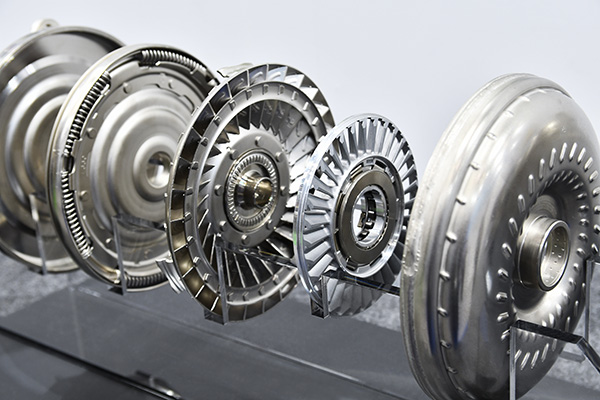
You may have heard the term "torque converter" thrown around in automotive circles, but what exactly is it, and how does it contribute to your vehicle's performance? The Torque Converter At its core, a torque converter is a hydraulic coupling device found in automatic transmission systems. Its primary function is to transfer power from the engine to the transmission, allowing for smooth and efficient acceleration while driving. A torque converter consists of three main components: the impeller, turbine, and stator. These elements work together to transmit power through the fluid coupling process, allowing for variable torque multiplication depending on driving conditions. How It Works Unlike manual transmissions, which rely on a clutch to engage and disengage the engine from the transmission, automatic transmissions utilize a torque c ... read more
Posted on 3/21/2024

Navigating through heavy traffic can be a stressful experience, testing the patience of even the most composed drivers. However, staying calm in traffic is crucial for both your mental well-being and the safety of everyone on the road. If you’re wondering how to keep your cool during traffic jams and congestion, keep reading our blog to find out. 1. Create a Relaxing Playlist One effective way to ease stress in traffic is to create a playlist of your favorite calming music. Whether it's classical tunes, soothing instrumental tracks, or your preferred genre of music, having a playlist ready can transform your commute into a more enjoyable experience. Plug in your favorite tunes and let the music help you relax. 2. Practice Mindful Breathing Mindful breathing is a powerful technique to reduce stress and stay centered. Focus on your breath, taking slow and deliberate inhalations and exhalations. Concentrating on your breath helps dive ... read more
Posted on 2/28/2024
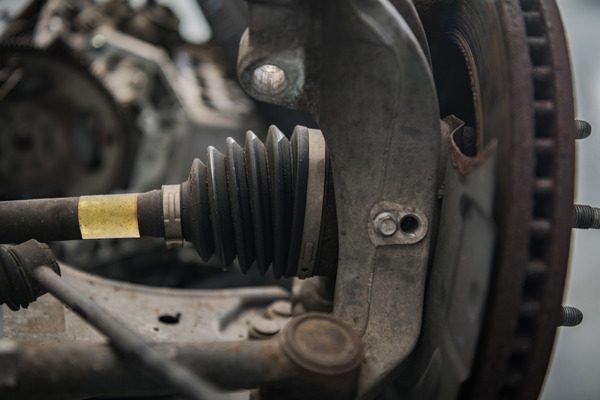
Are you familiar with the term CV joint but need clarification on its significance and what it actually does? If the answer is no, make sure to read along! We will go on a journey to learn more about the CV joints and explore their pivotal role in ensuring smooth and efficient vehicle operation. What is a CV Joint? CV, or constant velocity, joints are components of a vehicle's drivetrain system. These joints are located at the ends of the axle shafts and facilitate the transfer of power from the transmission to the wheels while allowing for smooth rotation at various angles. Breakdown of a CV Joint A CV joint consists of several key components, including the inner and outer races, ball bearings, cage, and protective boot. The inner race attaches to the transmission or differential, while the outer race connects to the wheel hub. Ball bearings inside the joint allow for smoot ... read more
Posted on 1/31/2024
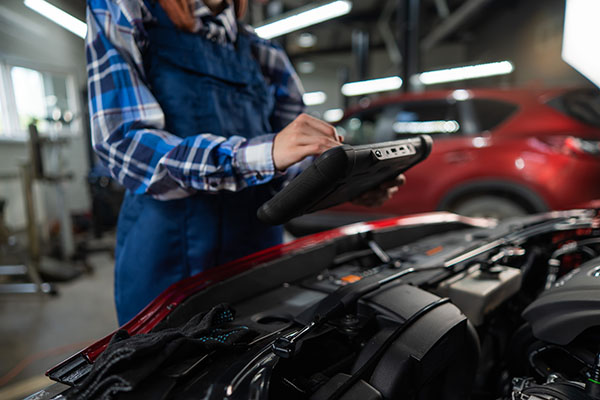
Replacing the intake air filter in your vehicle may seem daunting, but with the right guidance, it's a task you can master like a pro. Not only is it an essential aspect of car maintenance, but it's also a simple way to enhance your vehicle's performance and efficiency - and a fun DIY project! What Does The Intake Air Filter Do The intake air filter is a critical component of your car's engine. It serves to clean the air entering the engine for combustion, removing dust, debris, and other contaminants. A clean air filter ensures optimal engine performance, improves fuel efficiency, and reduces emissions. Over time, the air filter becomes clogged and needs to be replaced to maintain engine health and efficiency. Detailed Steps to Change the Intake Air Filter 1. Locate the Air Filter Open the hood of your car and look for a black plastic box; this is usually on top of or on the side of the engine. It might be different in some ... read more
Posted on 12/4/2023

As winter approaches, you might be wondering if winter tires are necessary for your vehicle. In regions where cold temperatures, snow, and icy roads are common during the winter months, equipping your car with winter tires can be a game-changer. Winter tires, often referred to as snow tires, are specially designed to provide superior performance in cold weather conditions. They are made from a different rubber compound that remains pliable in cold temperatures, allowing them to grip the road better and maintain traction on snow and ice. The advantages of winter tires include:Enhanced Traction Winter tires offer better control and handling in cold weather, reducing the risk of skidding and accidents. Improved Braking The enhanced grip of winter tires results in shorter braking distances, which can be a life ... read more
Posted on 11/30/2023
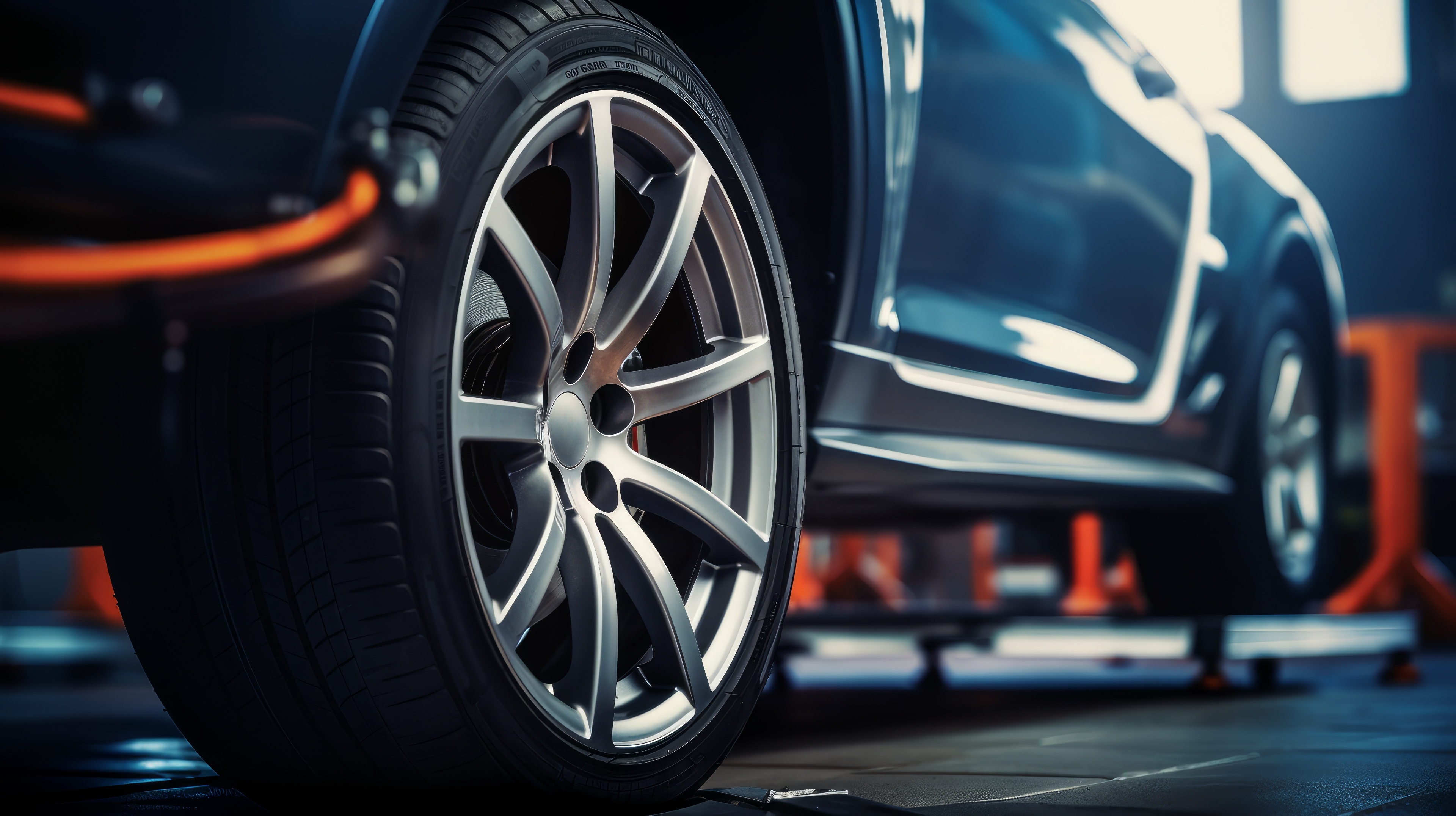
As you navigate the twists and turns of the road, your vehicle's traction control system silently plays a crucial role in ensuring a smooth and secure journey. While we are all familiar with that traction control light, understanding its function and addressing the question that often lingers in the minds of car owners are two things that need to be changed. Decoding the Traction Control System The traction control system (TCS) is a safety feature designed to prevent wheel spin during acceleration on slippery surfaces. It works in tandem with the anti-lock braking system (ABS) and other onboard sensors to detect when a wheel loses traction. Once identified, the system selectively applies brakes to the spinning wheel or reduced engine power, allowing the tire to regain traction. Preventing Wheel Spin The primary function of the traction control system is to prevent wheel spin as we just mentioned above, especially in scenarios like acceleration ... read more
Posted on 10/30/2023
.jpeg)
Owning a sleek and sophisticated rear-wheel-drive BMW is not just about embracing a luxurious driving experience; it's a commitment to upholding the performance legacy that this iconic brand represents. While BMWs are renowned for their impeccable engineering and dynamic handling, their rear-wheel-drive (RWD) configuration demands a specific set of maintenance practices to ensure optimal performance and longevity. Rear-Wheel Drive in BMWs Explained Unlike front-wheel-drive vehicles, where the engine's power is channeled to the front wheels, rear-wheel-drive systems distribute power to the rear wheels, enabling dynamic handling, balanced weight distribution, and enhanced driving performance. This setup allows for a more engaging and responsive driving experience, which is synonymous with BMWs. Why Do They Need Specific Care? The rear-wheel-drive configuration demands specialized care and attention due to its uni ... read more
Posted on 9/29/2023
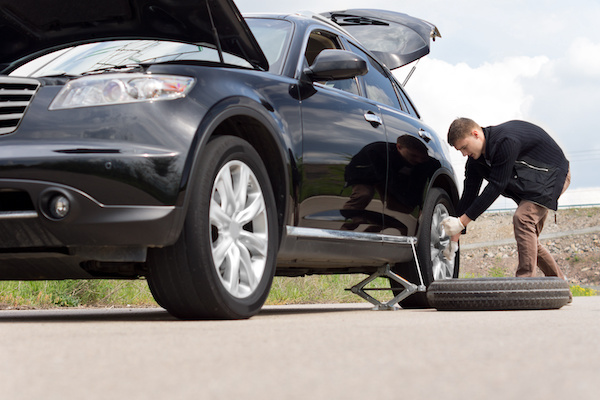
It's a scenario most drivers have experienced at least once in their lives – you're cruising along, and suddenly, you hear that unmistakable hiss of a flat tire. Your heart sinks as you pull over to the side of the road. But fear not! Changing a flat tire with a spare is a valuable skill that can save you time, money, and the hassle of waiting for roadside assistance. Don't fret - we'll walk you through the process, making it a breeze to get rolling again. Flat Tire Essentials Before you embark on this tire-changing journey, make sure you have these essentials: Spare Tire: Ensure your vehicle has a spare tire, and it's in good condition. Jack and Lug Wrench: These tools are typically found in your vehicle's trunk or under the cargo area. Flashlight: Essential if you're changing a tire in low-light conditions. Gloves: Keep your hands clean and protected. Step-by-Step Guide to ... read more
Posted on 8/30/2023
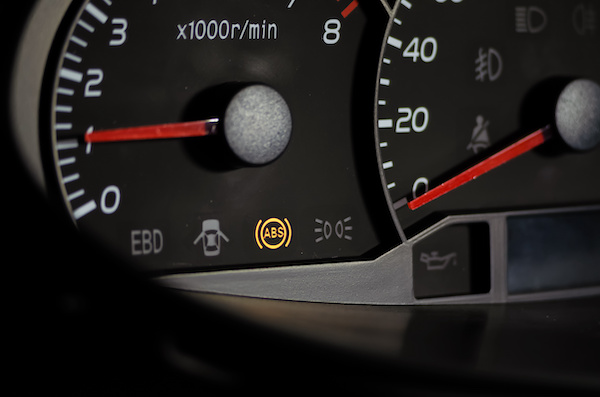
If you've ever noticed the ABS (Anti-Lock Braking System) light illuminated on your dashboard, you might be wondering what it means and how it affects your vehicle's safety. The ABS light is a crucial indicator that provides valuable information about your braking system's health. Let's dive into the details to help you understand the significance of this warning light. What is the ABS Light? The ABS light is a dashboard warning light that stands for Anti-Lock Braking System. When you start your vehicle, it typically illuminates briefly as part of the system's self-check. However, if the light remains on while driving or turns on while driving, it's indicating an issue within your ABS system. What Does it Mean? The ABS system is designed to prevent your vehicle's wheels from locking up during sudden or hard braking, helping you maintain control and steer in emergencies. When the ABS light is on, it could signify a few potential problems: Faulty Sensor ... read more